Spilling the beans on cacao versus coffee
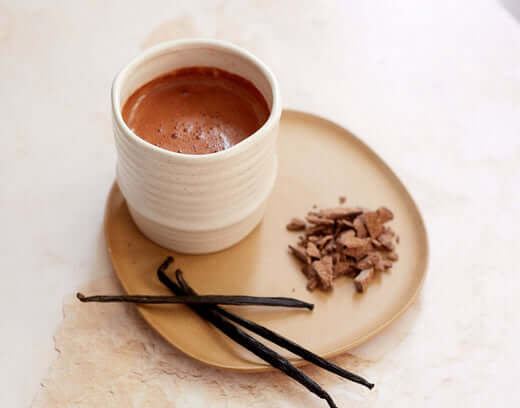
Summary (For those short on time): Coffee vs Cacao
-
Energy: Coffee = fast, intense boost; Cacao = gentle, long-lasting lift.
-
Stress: Coffee can raise cortisol; Cacao can help lower it.
-
Heart: Both support heart health; Cacao may be better for those with high blood pressure.
-
Side effects: Coffee can cause jitters, anxiety, and sleep disruption in sensitive people; Cacao is milder.
-
Nutrition: Cacao is rich in minerals and vitamins; Coffee has minimal nutrients.
-
Brain health: Coffee improves alertness and may protect against Alzheimer’s/Parkinson’s; Cacao boosts blood flow to the brain and supports long-term cognitive health.
Quick Comparison: Coffee vs Cacao
| Feature | Coffee | Cacao |
|---|---|---|
| Primary stimulant | Caffeine | Theobromine (plus small caffeine) |
| Energy feel | Fast, intense, short-lived | Smooth, sustained, gradual |
| Stress impact | Can raise cortisol/adrenaline | May lower cortisol, calming effect |
| Heart health | Antioxidants; may reduce disease risk | Flavonoids + theobromine improve circulation, lower BP |
| Side effects | Possible jitters, anxiety, digestive upset, poor sleep | Rare; well-tolerated by most |
| Nutrition | Minimal nutrients; high antioxidants | High in magnesium, iron, potassium, zinc, copper, calcium |
| Vitamins | High in B2 | Rich in B1, B3, B5, B6, B12, E, K |
| Brain health | Boosts alertness; long-term disease protection | Improves brain blood flow; supports memory & learning |
| Best for… | Quick performance boost | Stable energy + nutritional support |
Why Cacao Might Be a Better Choice Than Coffee (For Some)
My love affair with ceremonial cacao began in a spiritual community in Nicaragua. We gathered weekly for cacao ceremonies, and I was blown away by how cacao made me feel—alive, open, free, and joyful. Later, in Mexico, I drank cacao daily and eventually phased out coffee altogether with surprising ease. As a former hardcore coffee drinker (3–4 cups per day of my usual “strong three-quarter-full extra-hot soy latte with half a teaspoon of honey if you please”), this was an unexpected shift.
It wasn’t a strategic decision—just a preference. Cacao made me feel good, whereas coffee, in hindsight, often felt more like a quick fix—delicious and comforting, yes, but also something that sometimes left me wired and off-kilter, especially when my anxiety was already simmering.
Cacao gives me a more pleasant, gentle, long-lasting energy compared to coffee’s intense, fast-acting buzz. As meditation and yoga became integral to my life, it became clear that coffee sometimes clashed with the calm I wanted, while cacao was a steady ally.
After diving into the science, I now see that my instinct was backed by research. Still, coffee also has well-documented health benefits—and for many, it’s a performance booster, a brain sharpener, and a joyful daily ritual. Here’s how the two compare, point by point.
1. Stress & Hormones
Coffee increases epinephrine (adrenaline) levels in the blood, which is part of what makes it so effective for quickly boosting alertness. For some people—especially before exercise or during a long work session—this can be a welcome surge. Coffee also stimulates dopamine, which can improve mood and motivation in the short term.
However, that same adrenaline spike also activates the fight-or-flight response, and caffeine (especially in black coffee) can raise cortisol, the body’s main stress hormone. Higher cortisol over time can raise blood sugar, impair sleep, and heighten anxiety.
By contrast, cacao’s primary active compound, theobromine, boosts energy more gently and has been shown to lower cortisol. It also delivers magnesium, which supports relaxation and muscle function. While cacao does contain some caffeine, it’s much less than coffee (see table above).
Bottom line: Coffee is great for a sharp, fast energy lift, but cacao offers a smoother, more sustained energy curve that’s often better suited to stress-sensitive bodies.
2. Heart Health
Coffee is rich in antioxidants and has been linked to a lower risk of cardiovascular disease in many studies—particularly when consumed in moderation. It may improve endothelial function (the health of blood vessels) and reduce inflammation.
That said, caffeine can temporarily raise blood pressure and heart rate in sensitive individuals. In contrast, cacao is also antioxidant-rich but contains high levels of flavonoids and theobromine, which dilate blood vessels, improve blood flow, and can lower blood pressure. The Kuna Indians of Panama, who consume large amounts of cacao daily, have remarkably low rates of cardiovascular disease.
Bottom line: Both drinks can be heart-healthy, but cacao may have the edge for those with blood pressure concerns or sensitivity to caffeine.
3. Side Effects & Tolerance
Coffee’s effects vary widely depending on genetics, tolerance, and dose. For many, it’s a safe daily habit that enhances focus and productivity. But at higher doses, coffee can cause restlessness, jitteriness, anxiety, digestive upset, and disrupted sleep.
Caffeine has also been linked to certain fertility issues, including ovulation disruption and an increased risk of early pregnancy loss when consumed in high amounts.
Cacao doesn’t tend to cause these side effects, thanks to lower caffeine levels and the calming influence of magnesium and theobromine. For most people, it’s well-tolerated even in larger amounts.
Bottom line: Coffee can be perfectly fine for those who tolerate it well, but cacao is less likely to trigger jitters, sleep disruption, or hormonal disturbances.
4. Nutritional Value
Coffee is essentially calorie-free and nutrient-light—its main nutritional claim is that it’s a major source of dietary antioxidants.
Cacao, on the other hand, is a nutritional powerhouse. Per gram, it contains:
-
80–100% more iron
-
2700% more calcium
-
1040.8% more potassium
-
4766.7% more magnesium
-
51,300% more copper
-
9950% more zinc
-
6766.7% more phosphorus
These minerals support everything from oxygen transport to muscle function and immune health.
Bottom line: If you’re looking for nutrient density as well as energy, cacao wins easily.
5. Vitamins
Coffee contains more Vitamin B2 than cacao (+52%), which supports energy metabolism. That’s a genuine nutritional point in coffee’s favour.
But cacao provides:
-
+5300% more Vitamin E
-
+78.6% more Vitamin B1
-
+279.6% more Vitamin B3
-
+16.9% more Vitamin B5
-
+4100% more Vitamin B6
-
+∞% more Vitamin B12 (coffee has none)
-
+8000% more Vitamin K
These vitamins contribute to brain health, blood clotting, and cellular repair.
Bottom line: Coffee has one vitamin win, but cacao’s nutrient and vitamin profile is far broader.
6. Brain Health & Cognitive Function
Both coffee and cacao have compounds that support brain health, but they work in slightly different ways.
Coffee’s caffeine has been widely studied for its ability to improve alertness, concentration, and reaction time in the short term. Long-term research suggests coffee drinkers have a lower risk of developing neurodegenerative diseases such as Alzheimer’s and Parkinson’s, possibly due to caffeine’s effects on brain cell signalling and its antioxidant content.
Cacao is rich in flavonoids that cross the blood–brain barrier and increase blood flow to the brain, particularly in areas linked to memory and learning. Studies have shown that regular flavonoid intake from cacao can enhance cognitive performance, improve working memory, and protect brain cells from oxidative stress and inflammation—factors that contribute to age-related cognitive decline.
Bottom line: Coffee may be more potent for immediate mental alertness, while cacao offers a gentler lift and strong long-term brain-protective benefits.
Caffeine vs Theobromine: How Different Drinks Compare
| Drink | Caffeine per serving* | Theobromine per serving* |
|---|---|---|
| Peruvian Cacao | 47.5 mg | 222.5 mg |
| Mexican Cacao | 45 mg | 245 mg |
| Daintree Cacao | 42.5 mg | 250 mg |
| Karkar Island Cacao | 23.25 mg | 150 mg |
| Solomon Islands Cacao | 17 mg | 250 mg |
| Espresso (30mL) | 60–100 mg | 0 mg |
| Flat White (250mL) | 120–180 mg | 0 mg |
| Black Tea (250mL) | 40–70 mg | 0 mg |
| Green Tea (250mL) | 20–45 mg | 0 mg |
| Matcha (250mL) | 60–80 mg | 0 mg |
*Based on a 25g cacao serving.
The Takeaway
Coffee isn’t “bad” and cacao isn’t “perfect”—they’re different tools with different strengths. Coffee offers a rapid mental and physical boost, a comforting ritual, and certain disease-prevention benefits. Cacao delivers a gentler, longer-lasting lift, a treasure trove of nutrients, and a calming yet energising effect.
If coffee works well for you, enjoy it. But if you’re curious about a softer kind of vitality—or want to reduce caffeine without losing your morning ritual—try swapping one cup for ceremonial cacao and see how you feel.
3 comments
-
shrea kuile on
It is a learning topic on the health benefits of cacao and coffee. Thanks for sharing the useful blog. You mentioned the nutrients and health benefits of cacao and coffee. Although I drink black coffee and reap its health benefits. I shall try to drink cacao. I like your blog and also prefer organic products.
-
Australian Ceremonial Cacao on
Ceremonial cacao has been a game-changer for me too—gentle energy, and so much more nourishing than coffee. Theobromine really makes a difference, especially for mood and focus.
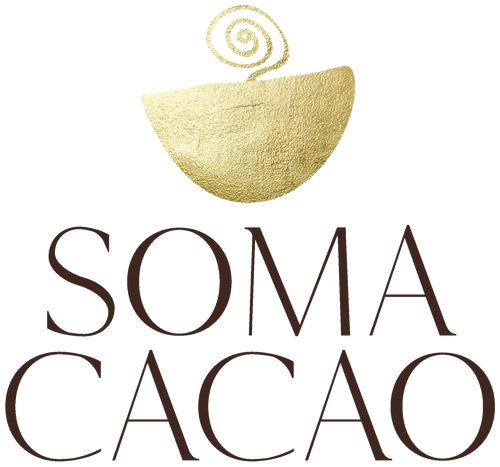
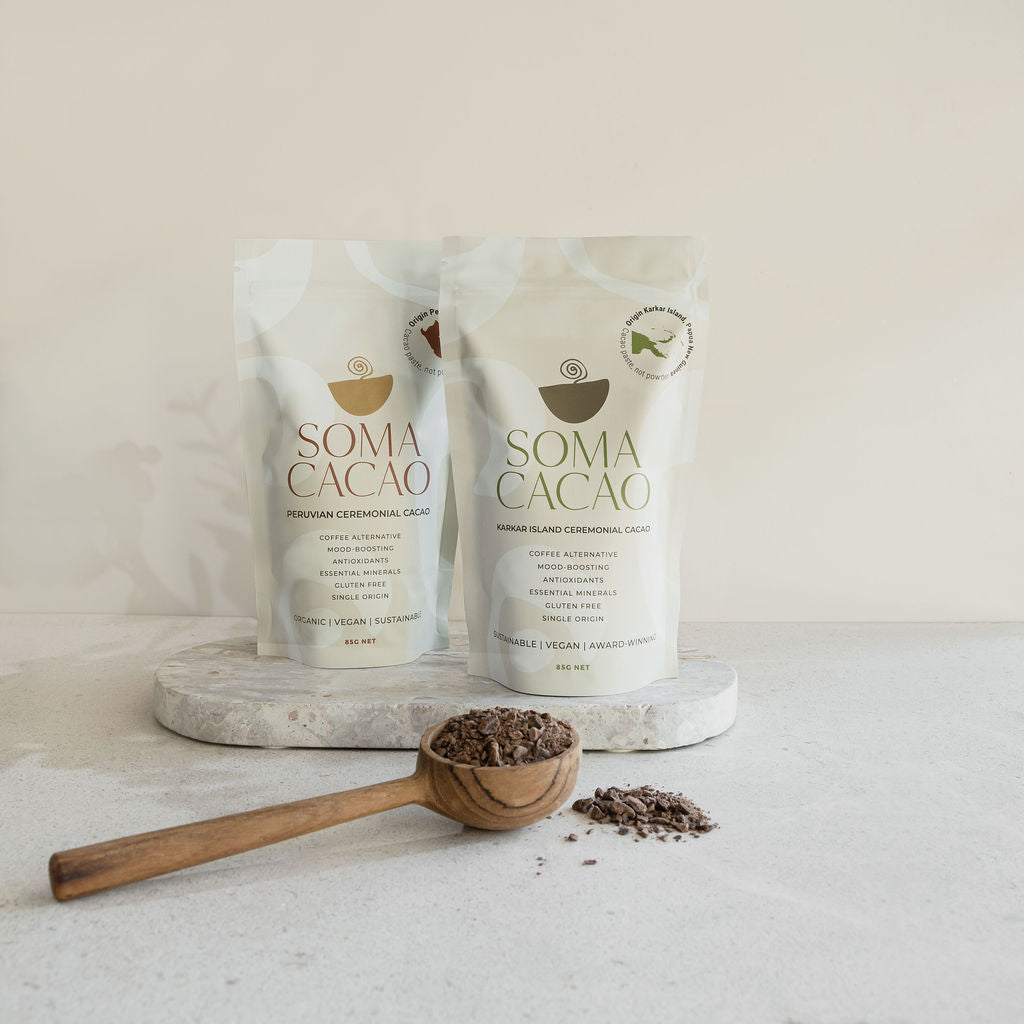
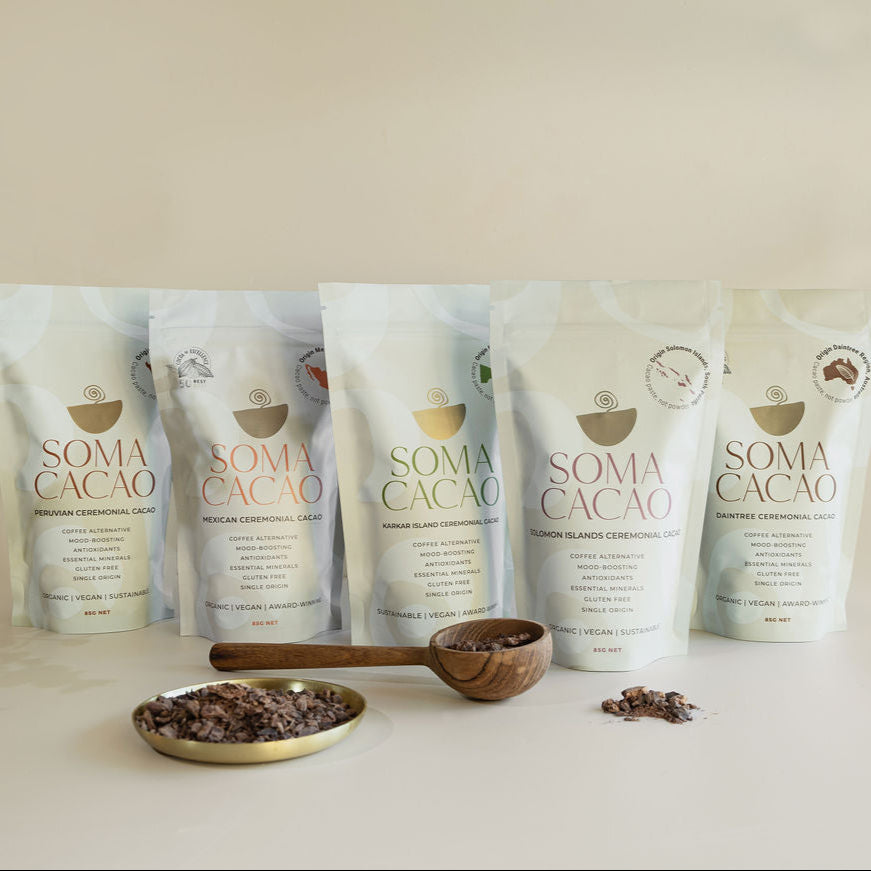
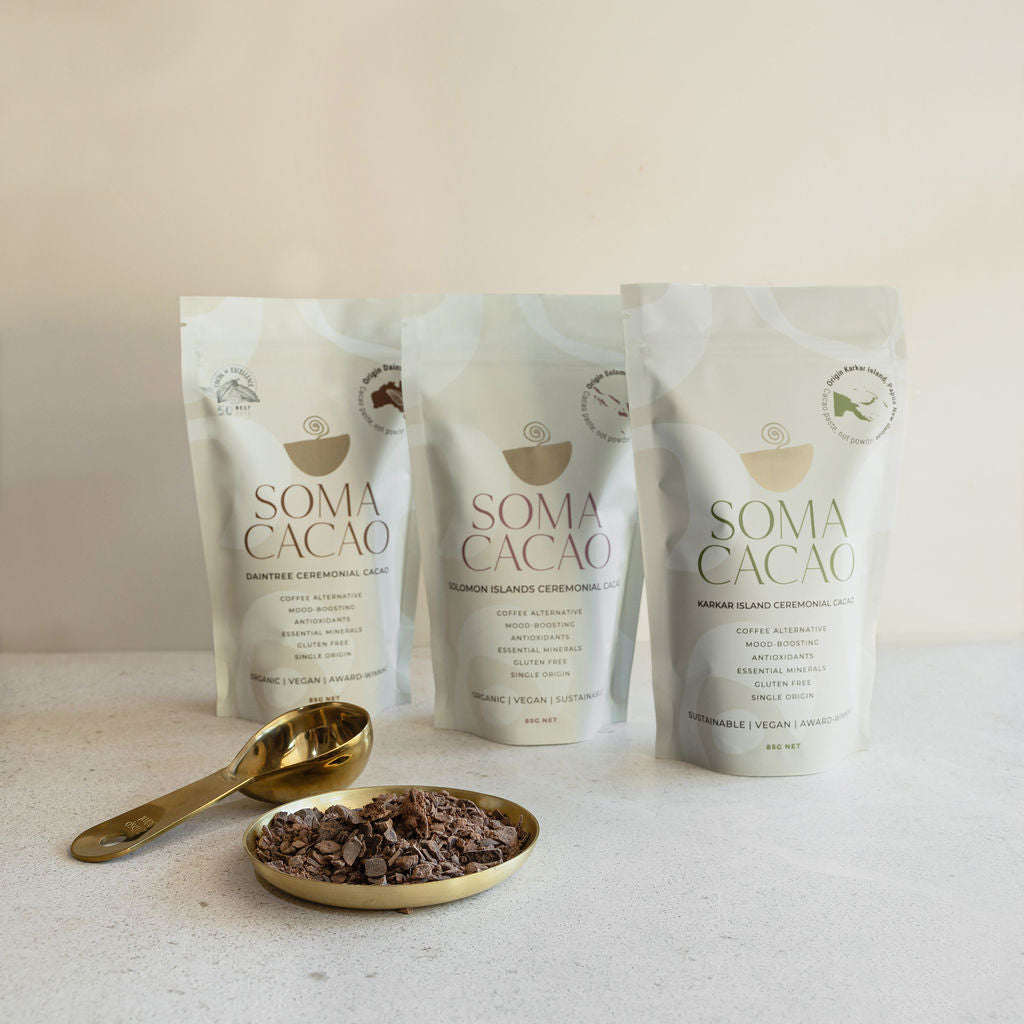
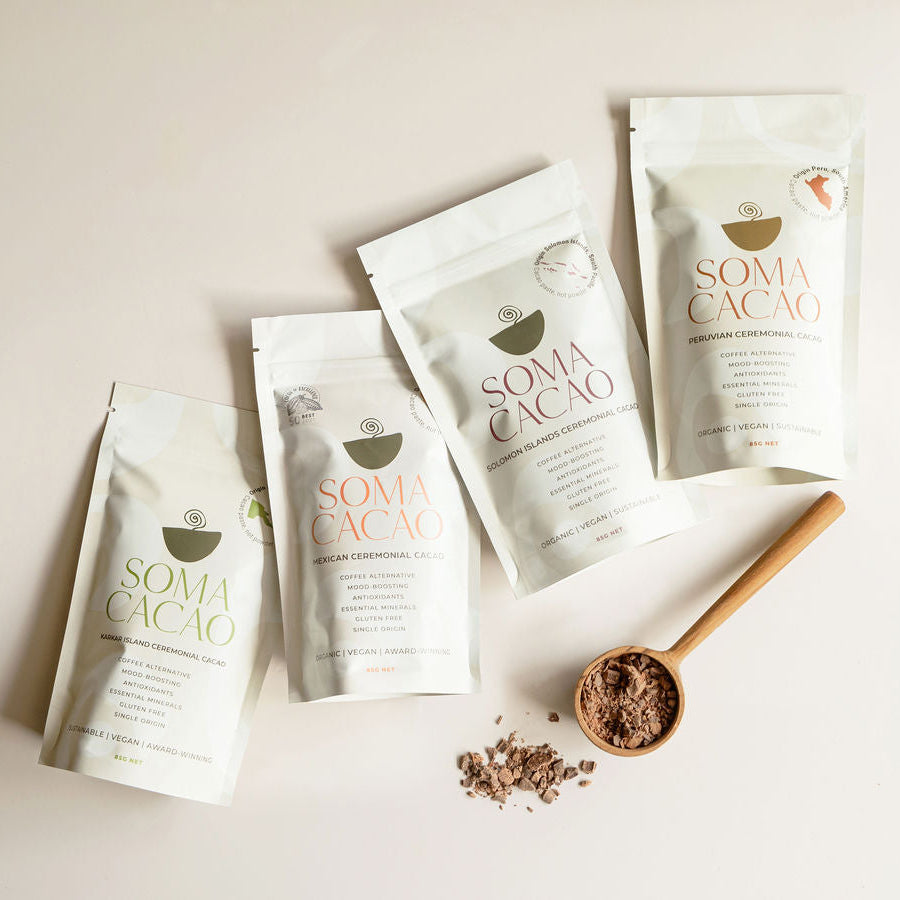
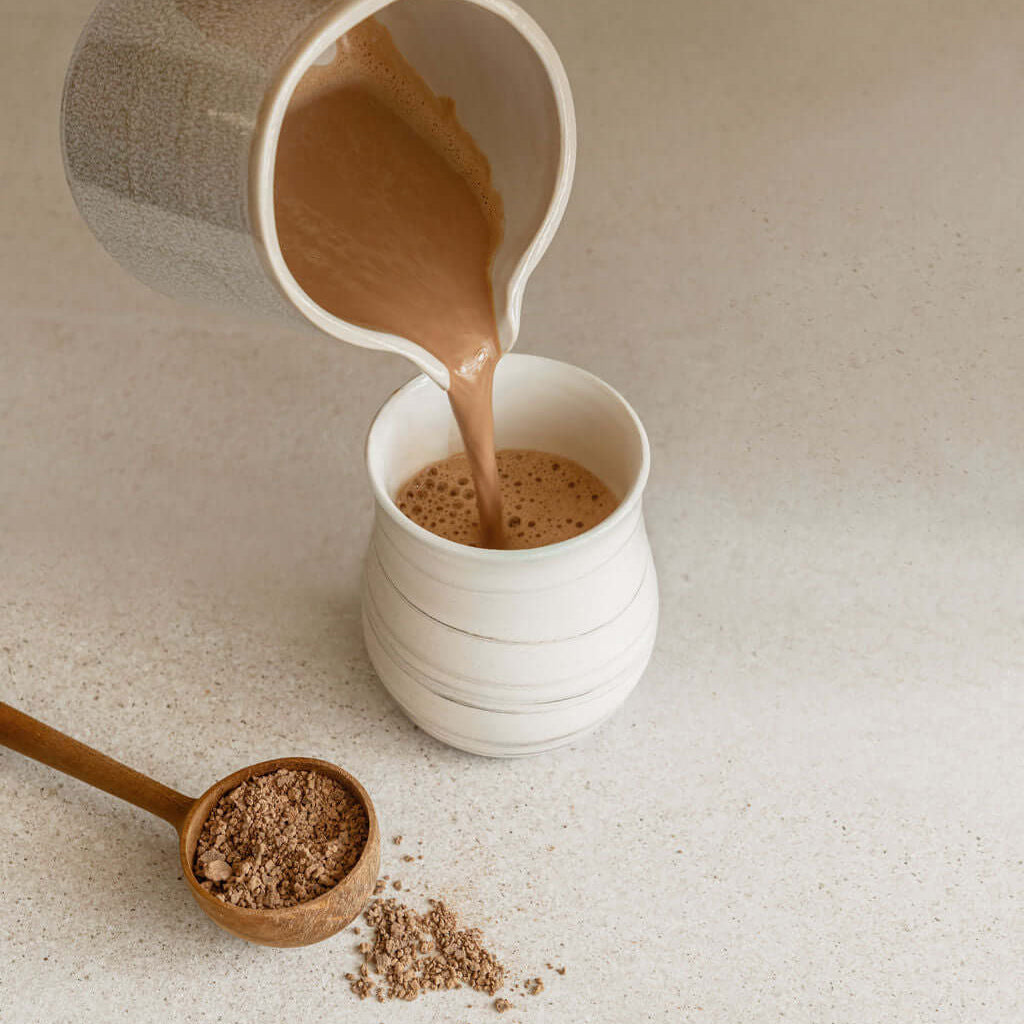
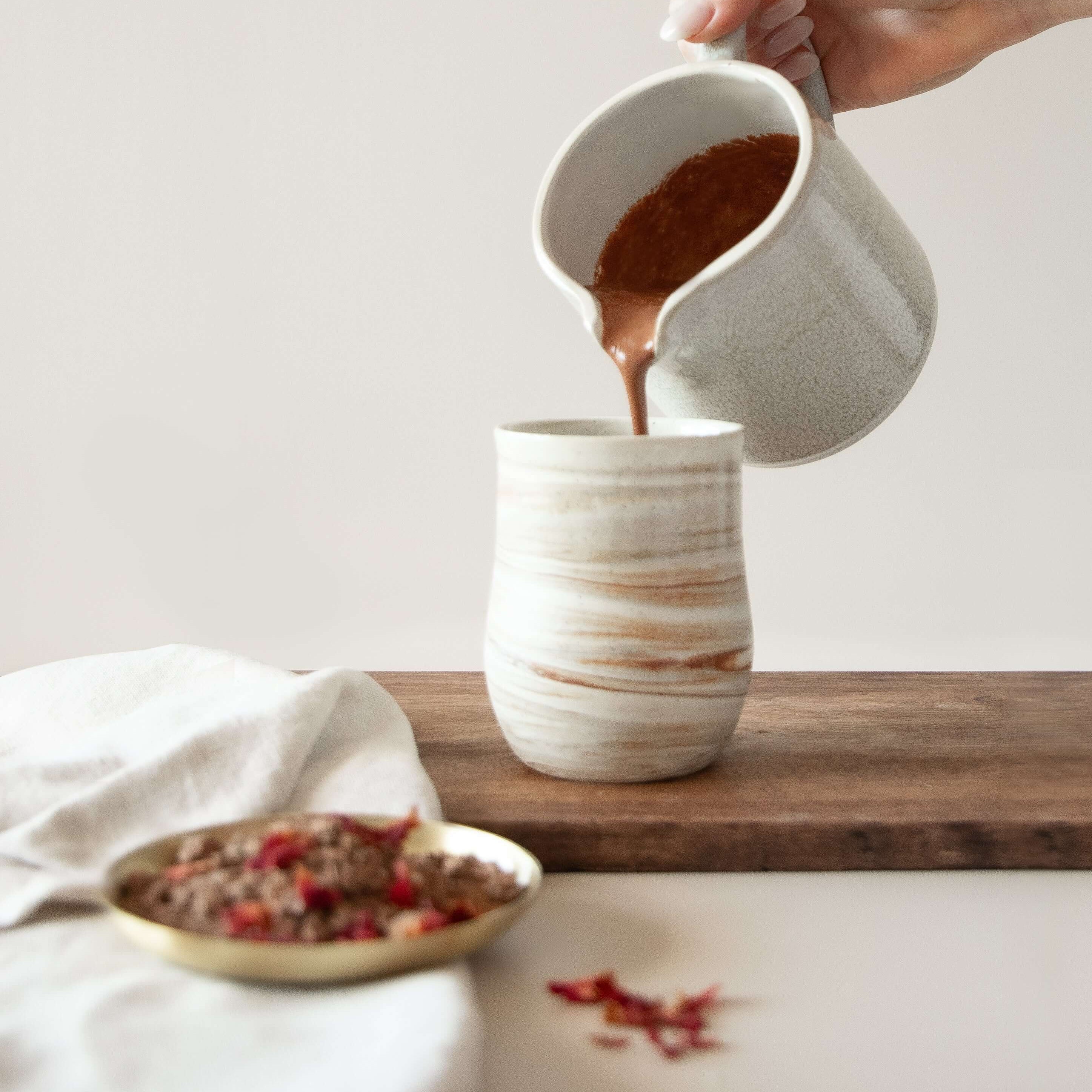
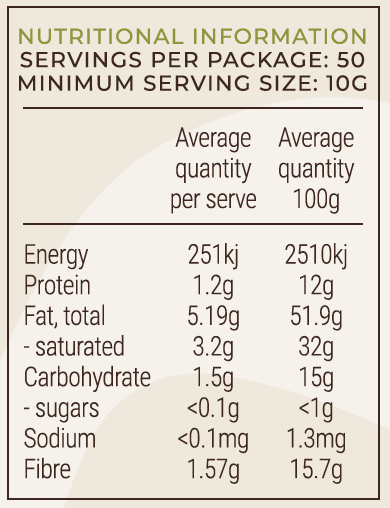
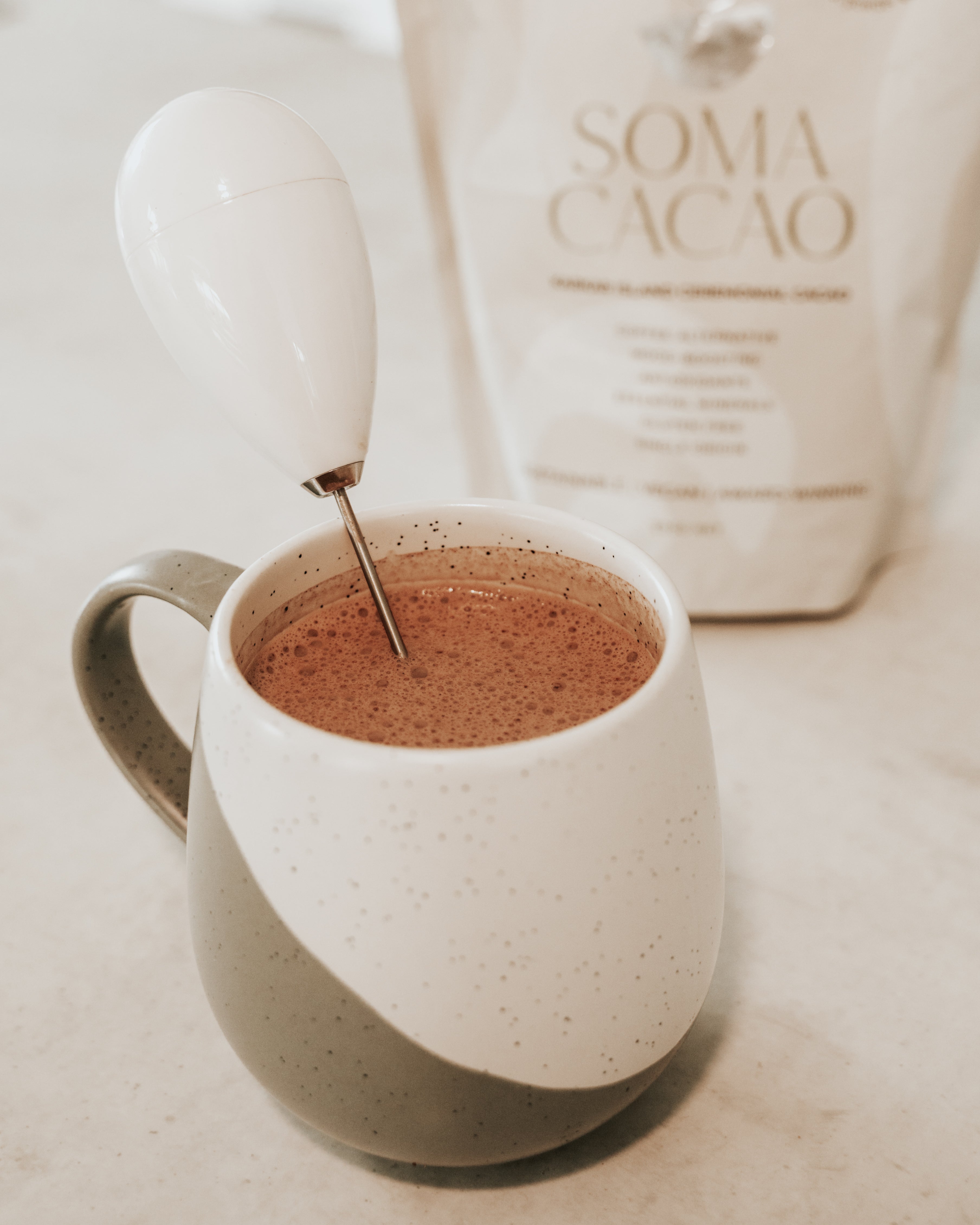
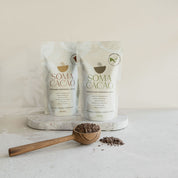
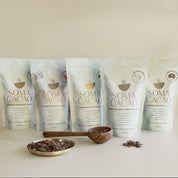
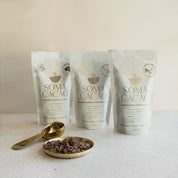
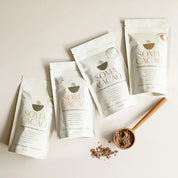
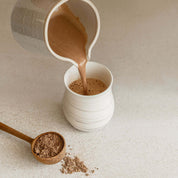

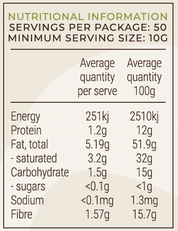
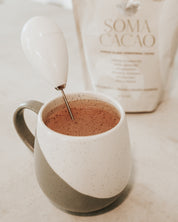


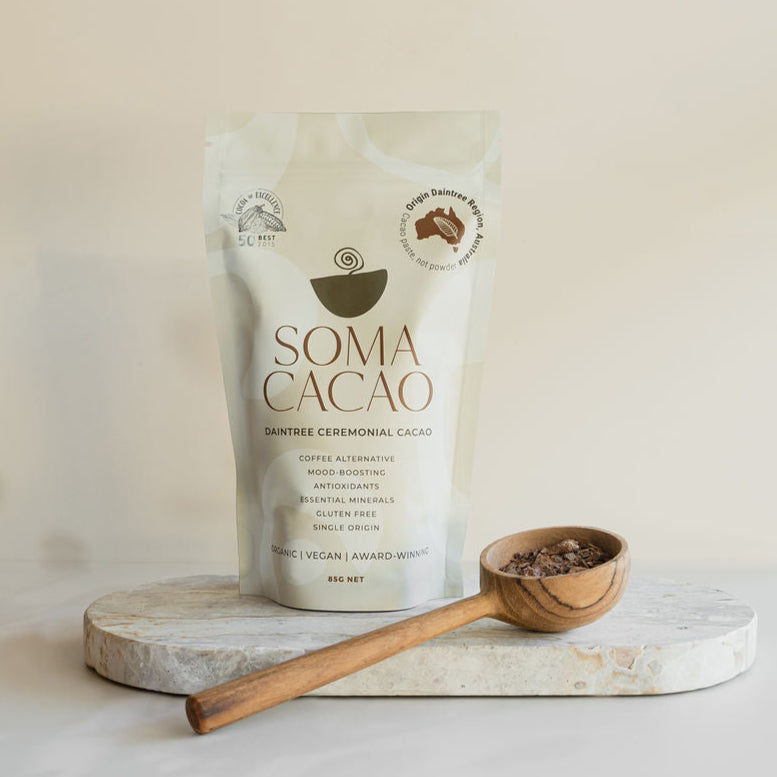
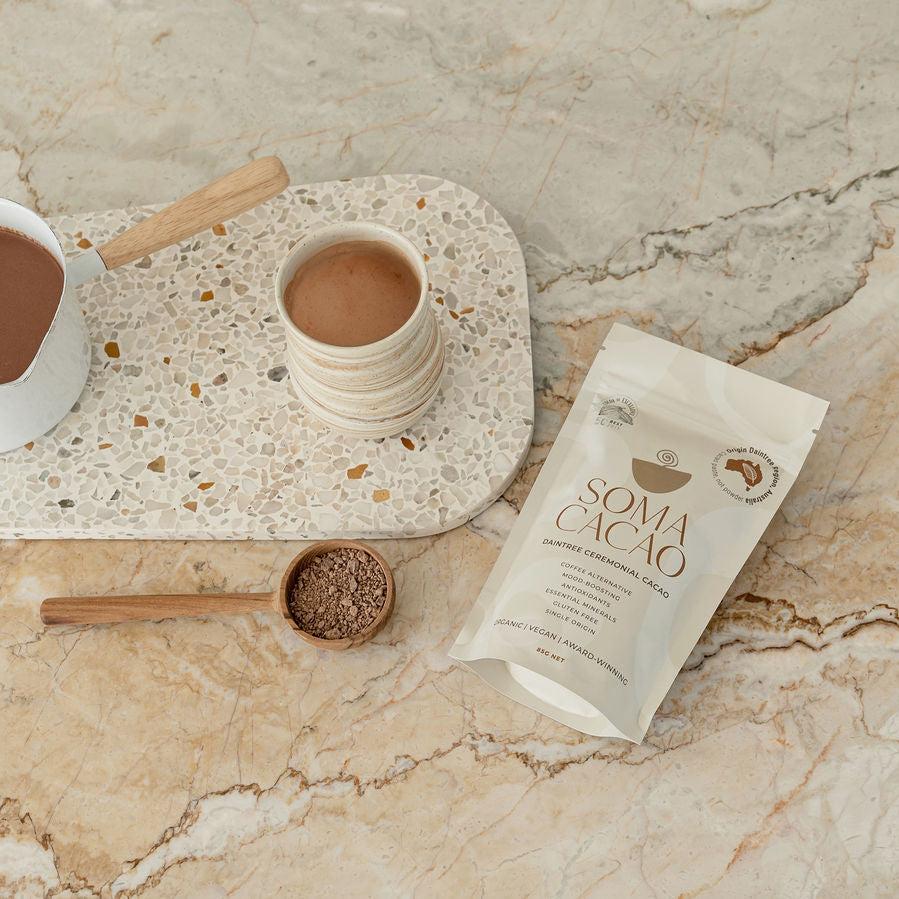
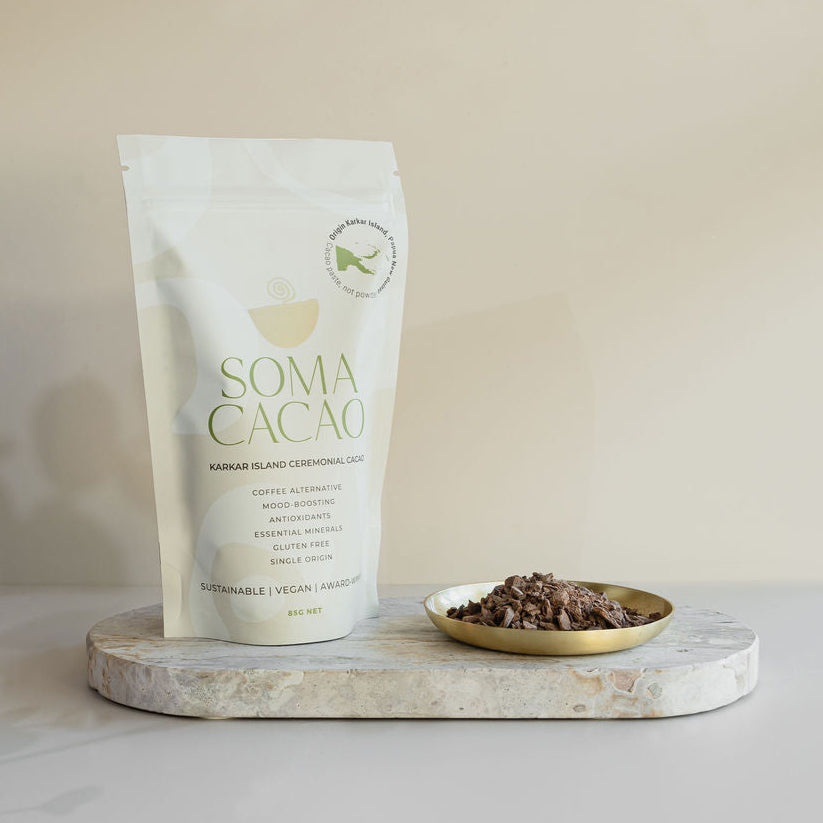
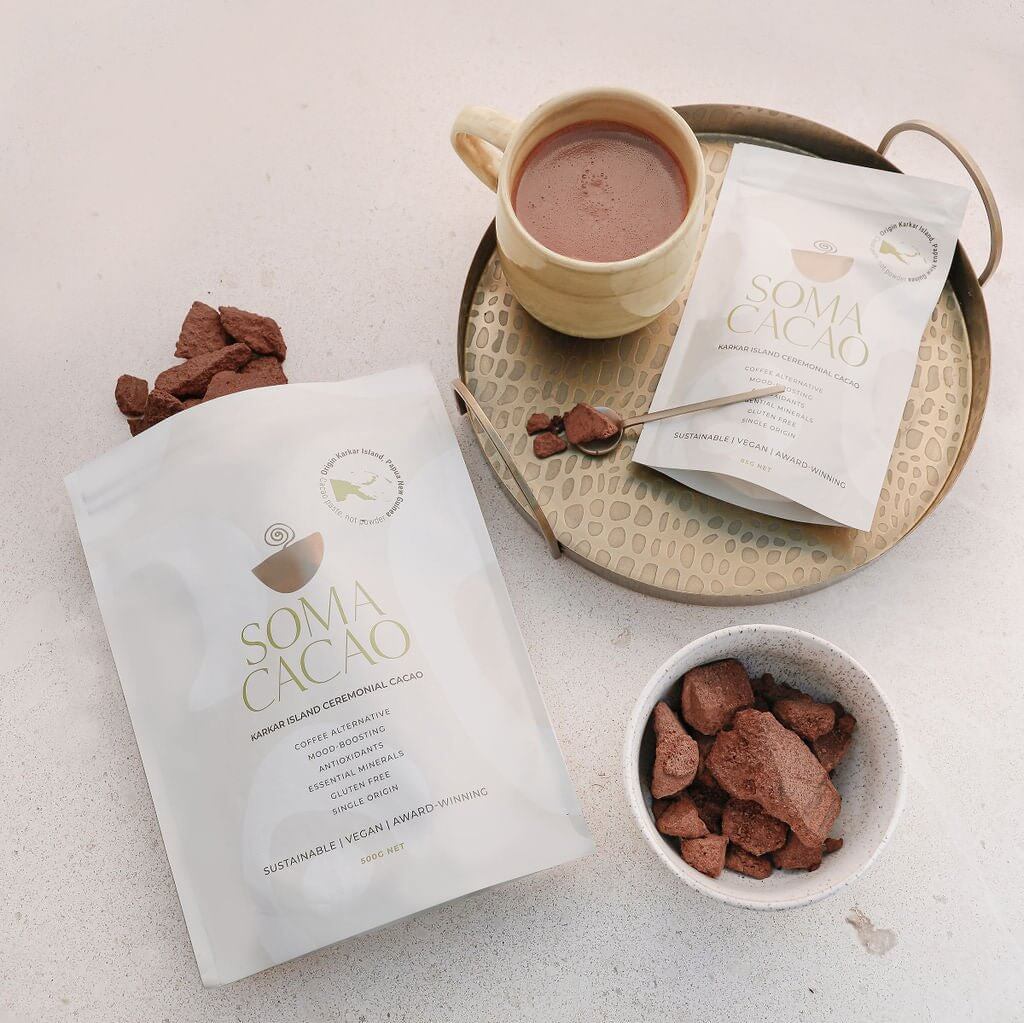
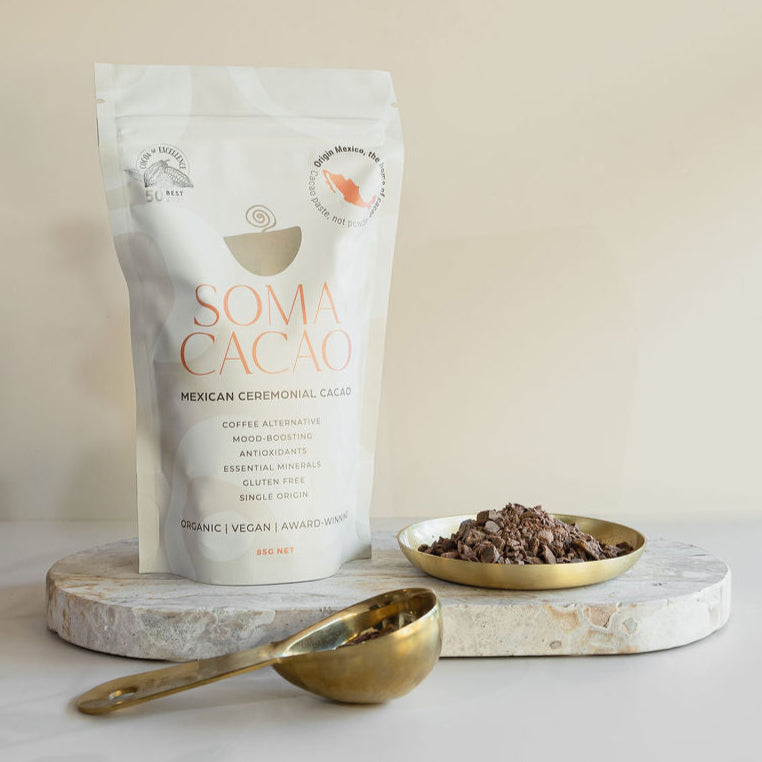
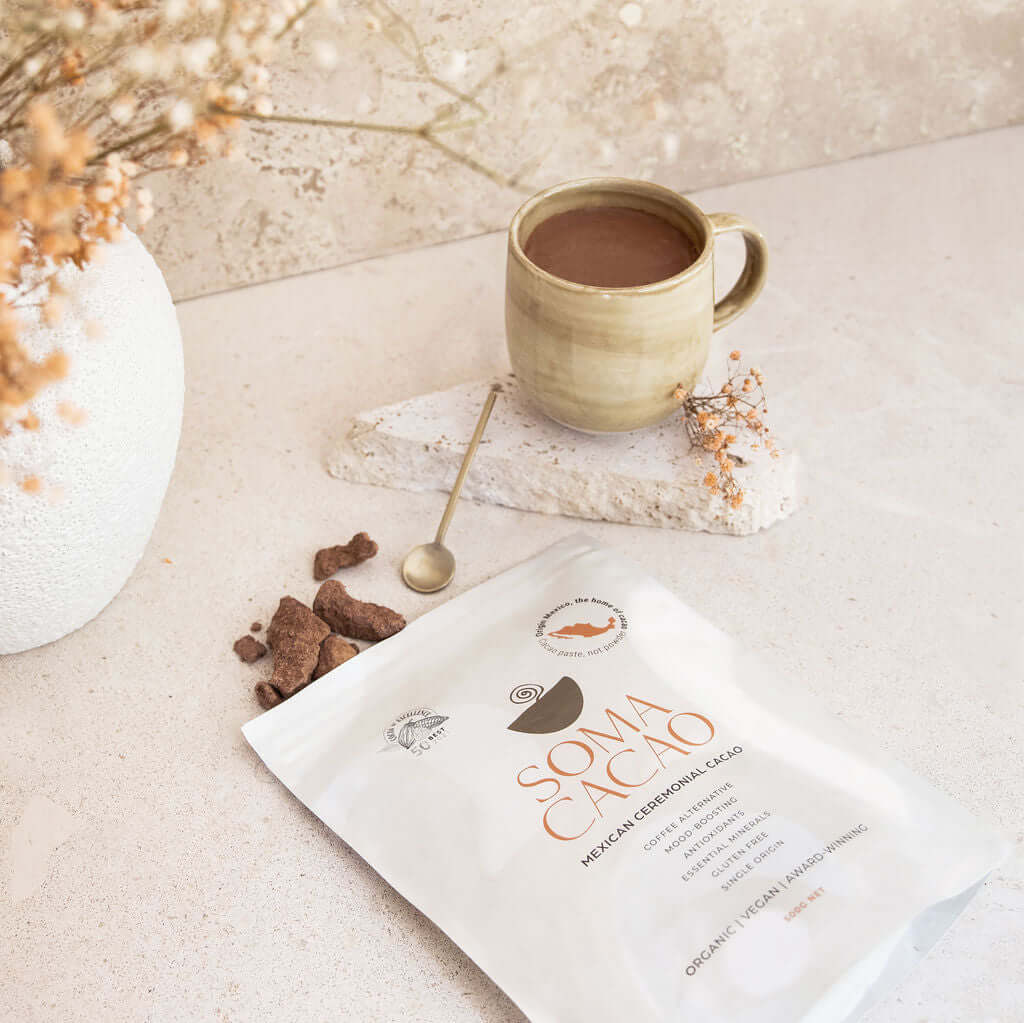
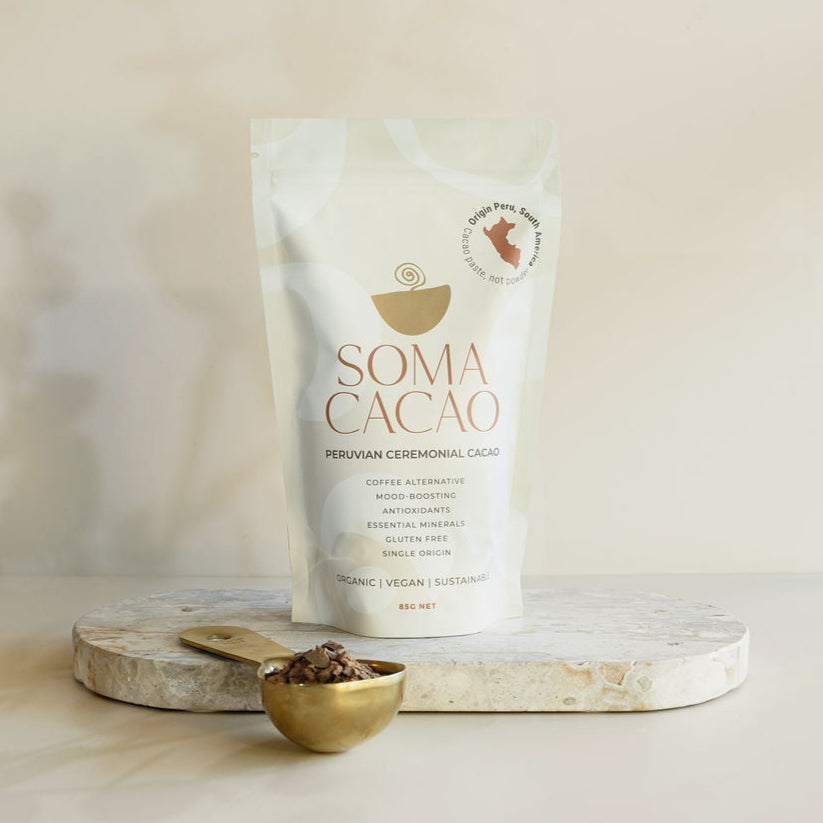
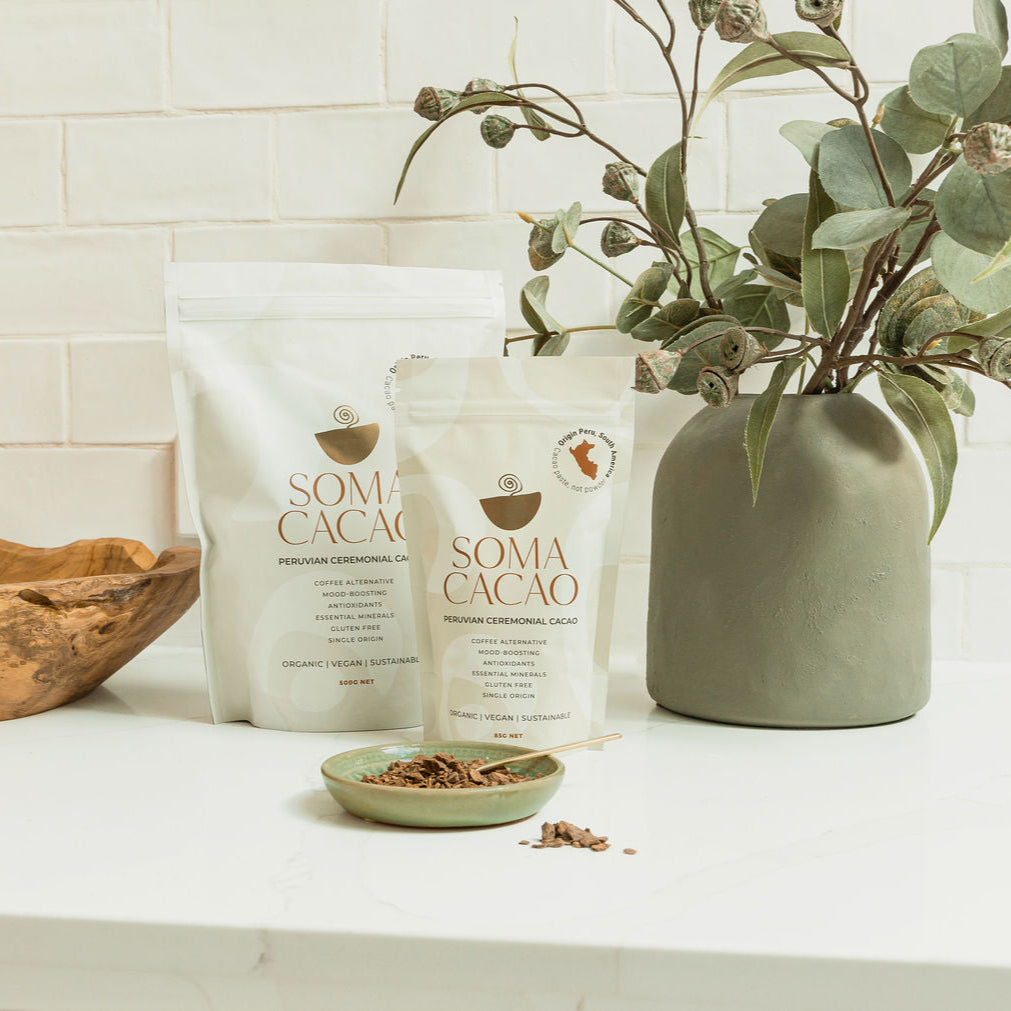
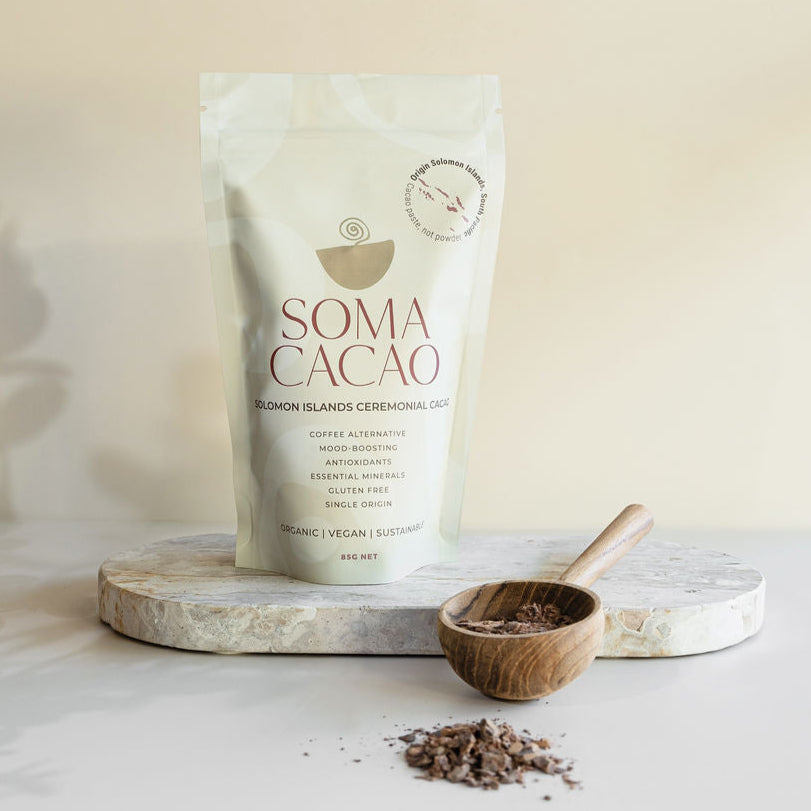
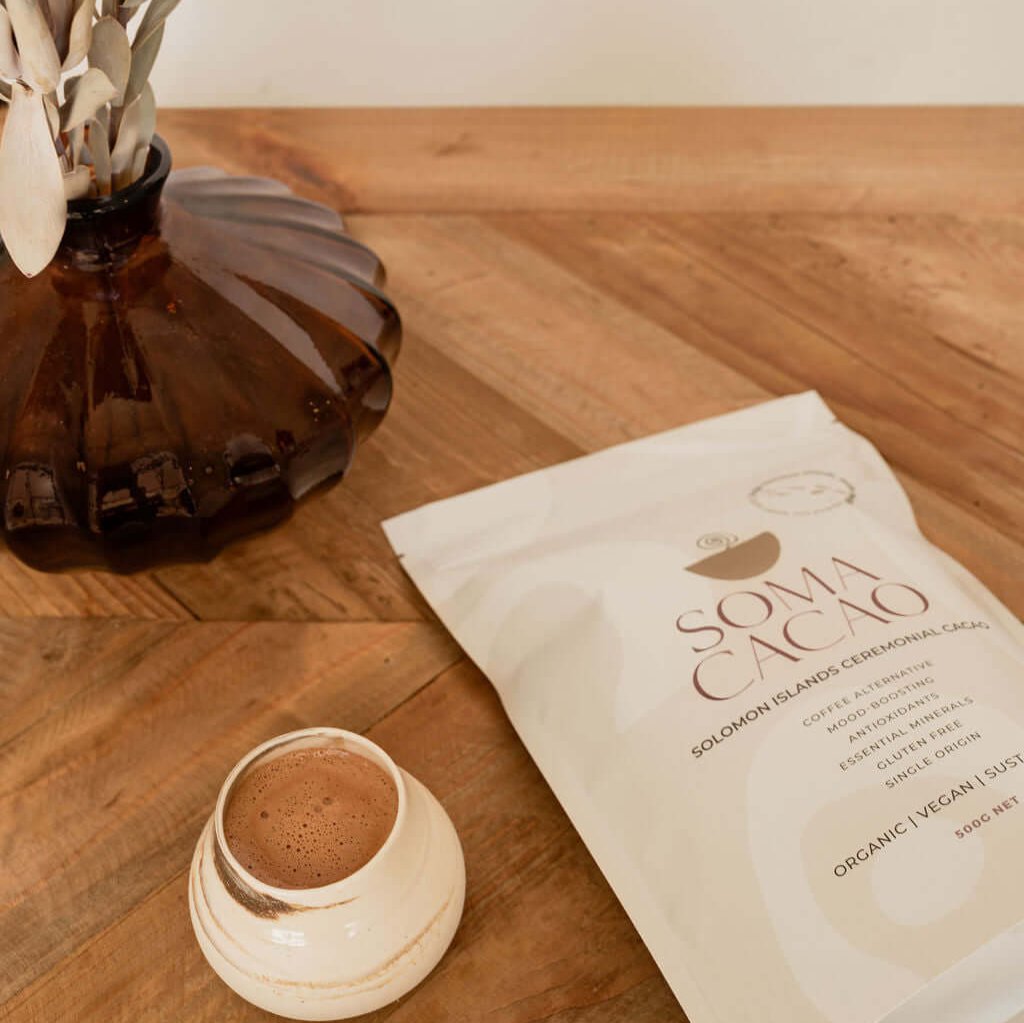
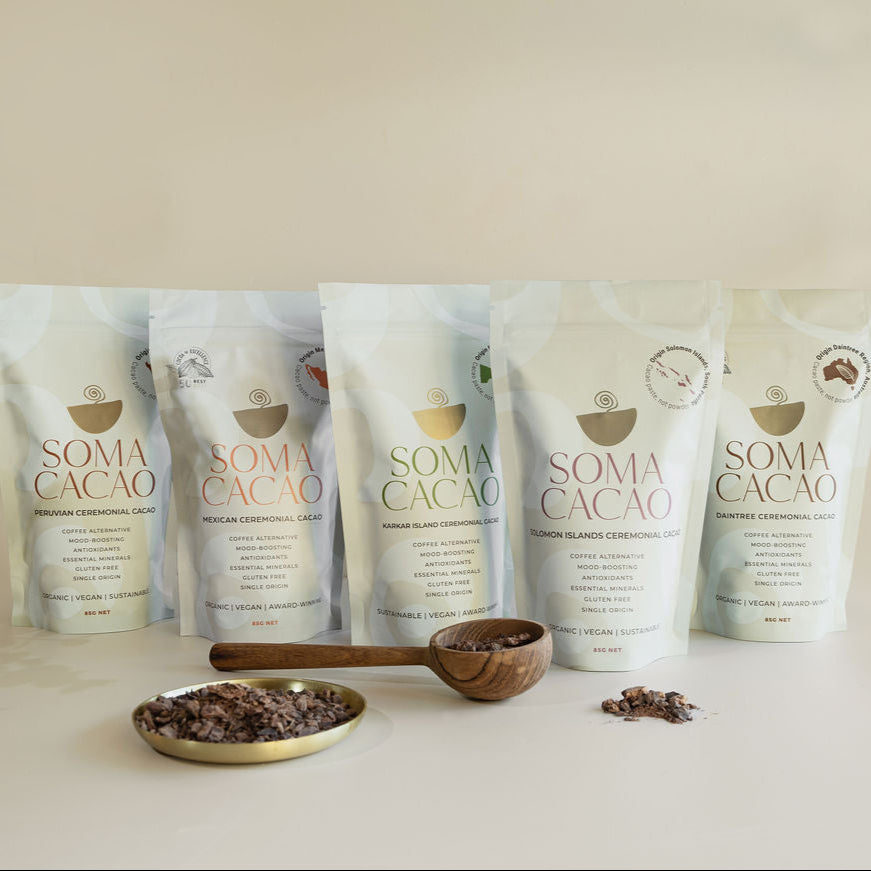
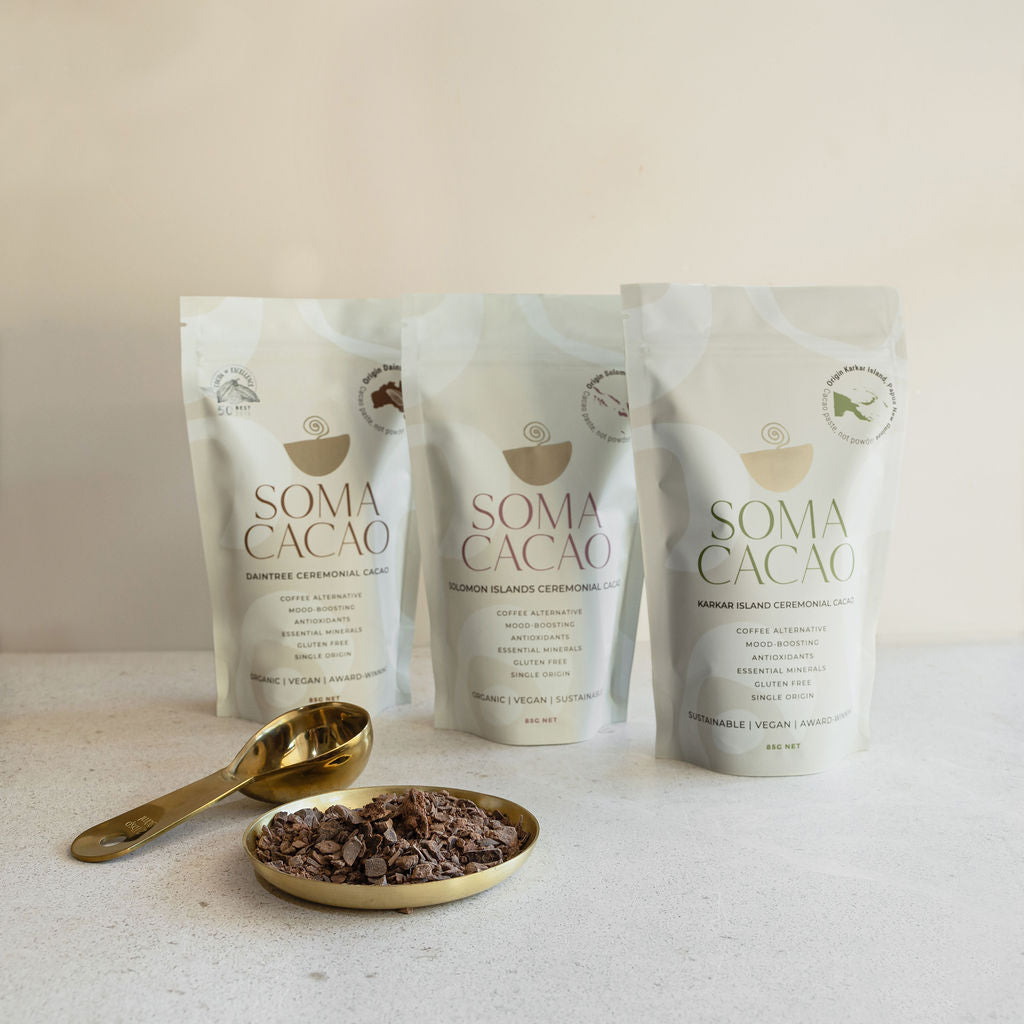
With the best will in the world, from someone who isn’t even a big fan of coffee, this “article” (for wont of a better word) is quite unnecessarily and disgracefully one sided! There’s only about one sentence in there about the health benefits of coffee, when proper research is now touting its benefits more and more. I’m personally a little dubious of the veracity of all of it, but to ignore it all in this context is just shameful! Of course cacao is good for you, but you don’t have to denigrate the “opposition”, to expedience, to sell your product. And whoever wrote this should be ashamed!